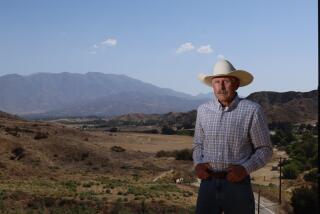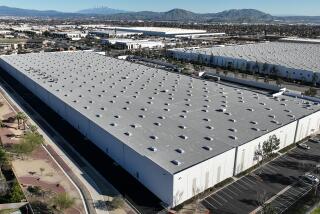Banning Wal-Mart May Prove Costly
In February, the Los Angeles City Council is expected to vote on an ordinance that would keep Wal-Mart from opening Supercenters within city limits. Labor interests are working hard to ban these nonunion outlets, which compete with traditional grocery stores. Yet unions will come to regret such limits.
A city ordinance can keep Wal-Mart from opening in Los Angeles, but it will not stop residents from shopping at Wal-Mart. If kept from locating in Los Angeles, Wal-Mart will consider locations in neighboring areas on the edges of the city. As Los Angeles residents shift their spending to Wal-Mart, city tax revenues will be reduced.
Oakland has banned the huge stores, and just last week the West Covina City Council rejected a land sale that would have resulted in a Wal-Mart in their city. In the April 6 Inglewood election, voters will decide whether their City Council’s ban will stand.
In Los Angeles, existing community plans and the difficulty in finding large lots make it hard for Wal-Mart to find suitable locations for its Supercenters. The Los Angeles proposal introduced by Councilman Eric Garcetti and drawn up with City Atty. Rocky Delgadillo would prohibit the construction of Supercenters in areas designated for redevelopment and revitalization.
There is tremendous irony in this. Los Angeles, which for years has begged regional supermarkets to locate in areas such as South Central, would ban superstores in the very areas that need them the most. According to an aide to Garcetti, the concern is that a superstore would put existing retail economic development investments at risk. So, in a most bizarre turn of events, the economic development bureaucracy opposes economic development.
If the ordinance passes in February, as expected, it will deprive poor neighborhoods of convenient, low-price shopping and entry-level jobs. Poor communities would remain saddled with ineffective revitalization efforts rather than the market-driven redevelopment that would follow the opening of a Wal-Mart.
Those who oppose the growth of superstores cite studies finding that for every job Wal-Mart creates, two are destroyed. This sounds dire, but it is misleading. Jobs are lost every day as employment adjusts to changes in technology and consumer preferences. The retail industry isn’t the first industry to develop ways to use labor more efficiently. But this does not mean permanent unemployment. History tells us that the result would not be growing regional unemployment but a shift in jobs toward businesses that are expanding.
Although retail grocery chains may contract, no one expects them to go out of business. As anyone who has shopped at Wal-Mart and Ralphs knows, they are very different. There are a good number of consumers who find that difference worth the extra money.
The shift to superstores is part of an overall retail trend that takes advantage of scale in purchasing, distribution and retailing. We can no sooner stop this trend than we could years ago stop mom-and-pop grocery stores from giving way to regional supermarket chains. Superstores offer us convenience and lower prices. This is a good thing.
All this means that efforts to restrict locating a superstore in a city are shortsighted. The city as a whole would lose substantial retail sales revenue.
Once Wal-Mart has located its new stores elsewhere, it will be too late to do something about making up the lost revenue. Los Angeles, in particular, is giving up a tremendous opportunity to revitalize poor neighborhoods.
In California, the retail sales tax is one of the few sources of revenue that politicians may use for discretionary spending. Cities wine and dine potential retail establishments, offering them enticements to locate within their borders. Yet in cities such as Los Angeles, Oakland and West Covina, and in Contra Costa and Alameda counties, the powers that be are working hard to keep them out.
More to Read
Inside the business of entertainment
The Wide Shot brings you news, analysis and insights on everything from streaming wars to production — and what it all means for the future.
You may occasionally receive promotional content from the Los Angeles Times.










